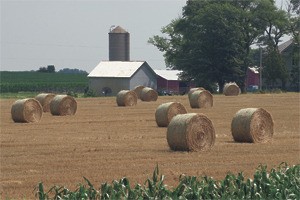San Juan County Assessor Charles Zalmanek thought he had found a way to give local farmers a three-year grace period to make enough money from farming to keep their land assessed as “farm and agricultural land” for property tax purposes.
Assistant Attorney General Callie A. Castillo responded to county Prosecutor Randy Gaylord’s request for an opinion on the plan with a four-page explanation why that grace period would no longer work.
Under state law, Zalmanek was told, his “mandatory duty” was “to remove non-qualifying property” from classification as farm and agricultural land if the owner cannot demonstrate that his land remained in active use as a farm. The kicker is that the assessor must “impose additional tax, interest and penalty” as of the date the land stopped being farmed.
To retain favorable current use classification, Zalmanek said a landowner must demonstrate that the farm generates “a monetary profit from cash income by producing an agricultural product.” The specific dollar amount required for compliance varies according to the size of the property, according to state law.
Responding to property owners and agriculture groups, Zalmanek had hoped to enter into “deferral agreements” with non-compliant landowners. He pointed out that “in most cases the land is actually being farmed, but is not generating net income, even after having been enrolled for many years.”
The state attorney general’s office says those deferral agreements are not legal.
Zalmanek would not release any details of number or acreage of properties in danger of losing the favorable tax classification, nor the owners’ names, until after notifications had been sent to owners. He did say, however, “We are at a point in time for many properties where the next step is to send the Notice of Intent to Remove” a property from the farming classification.”
The only detail he would give was that one 500-acre farm on San Juan Island was in danger of getting that ominous notice of intent.




